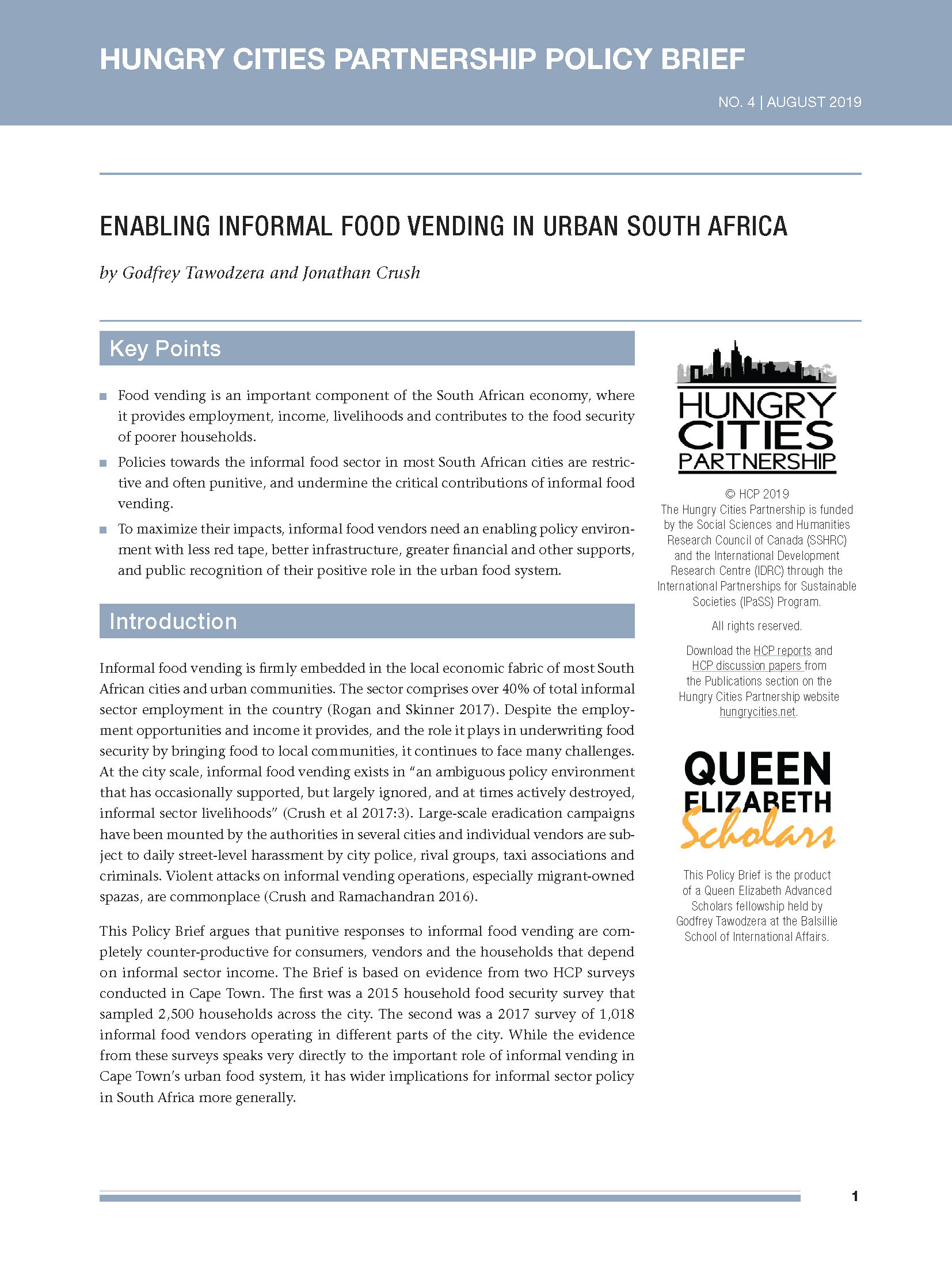Food vending is an important component of the South African economy, where it provides employment, income, livelihoods and contributes to the food security of poorer households.
Policies towards the informal food sector in most South African cities are restrictive and often punitive, and undermine the critical contributions of informal food vending.
To maximize their impacts, informal food vendors need an enabling policy environment with less red tape, better infrastructure, greater financial and other supports, and public recognition of their positive role in the urban food system.

